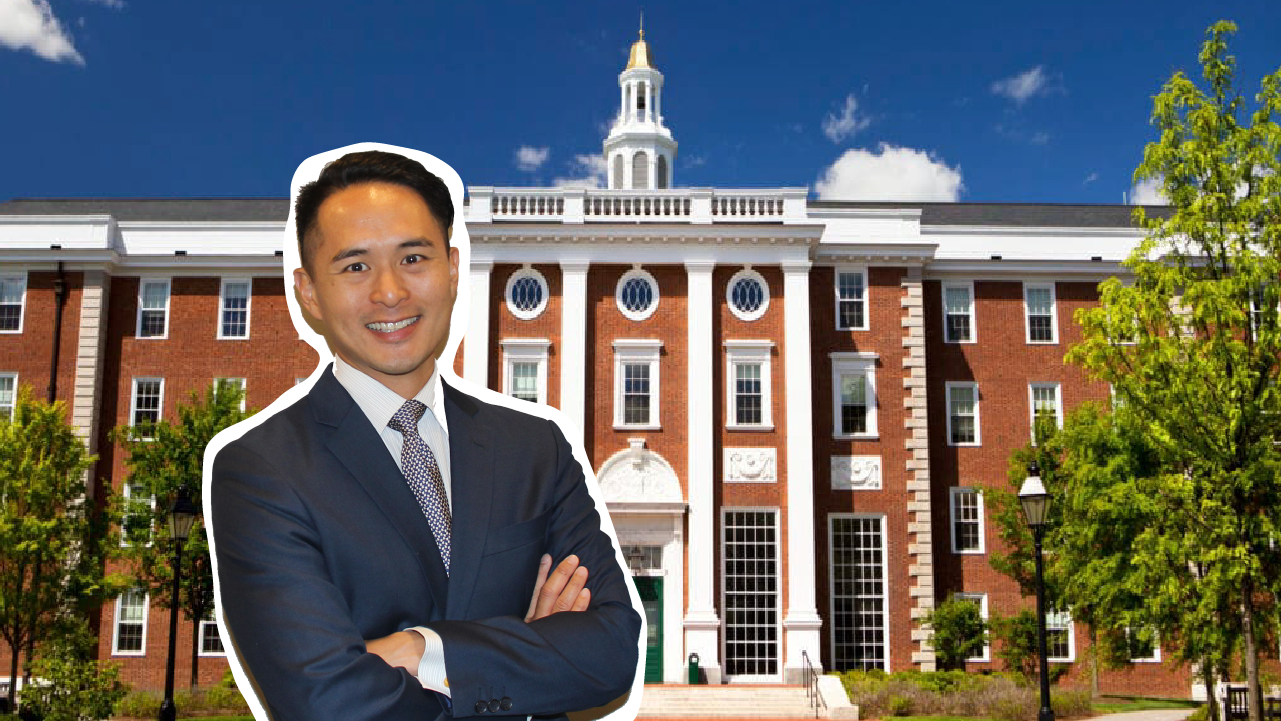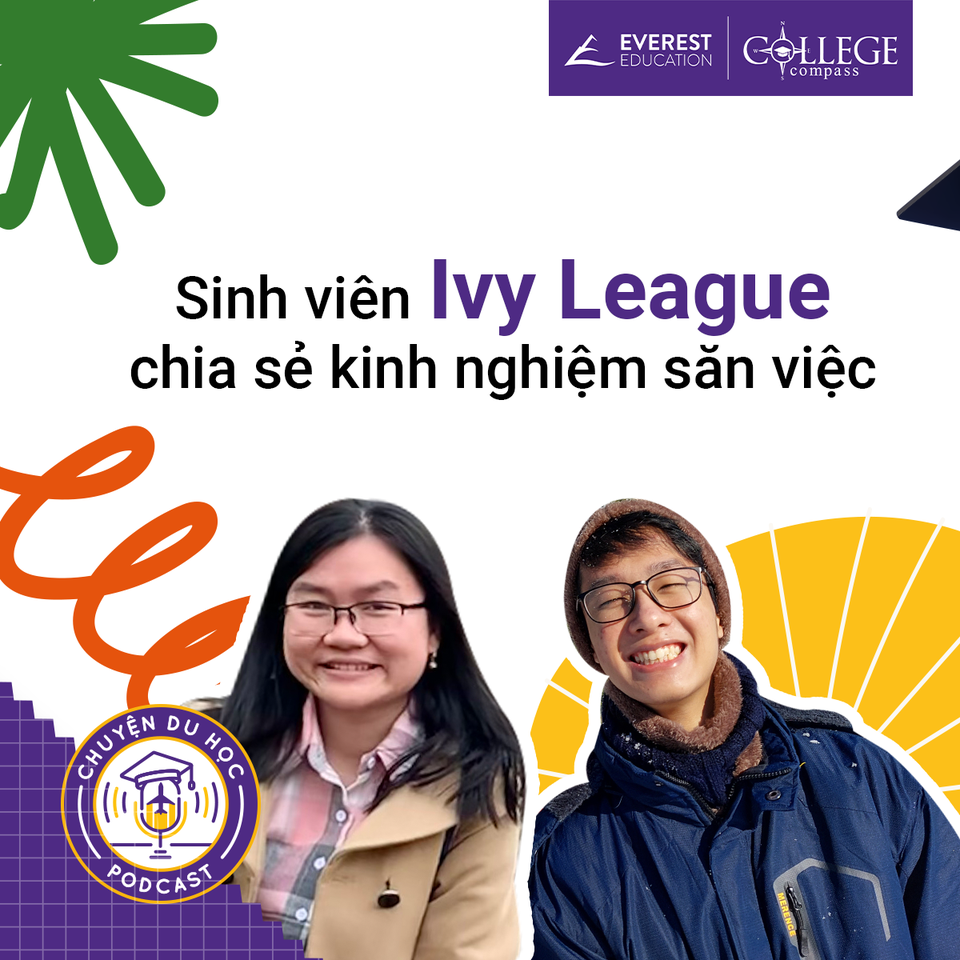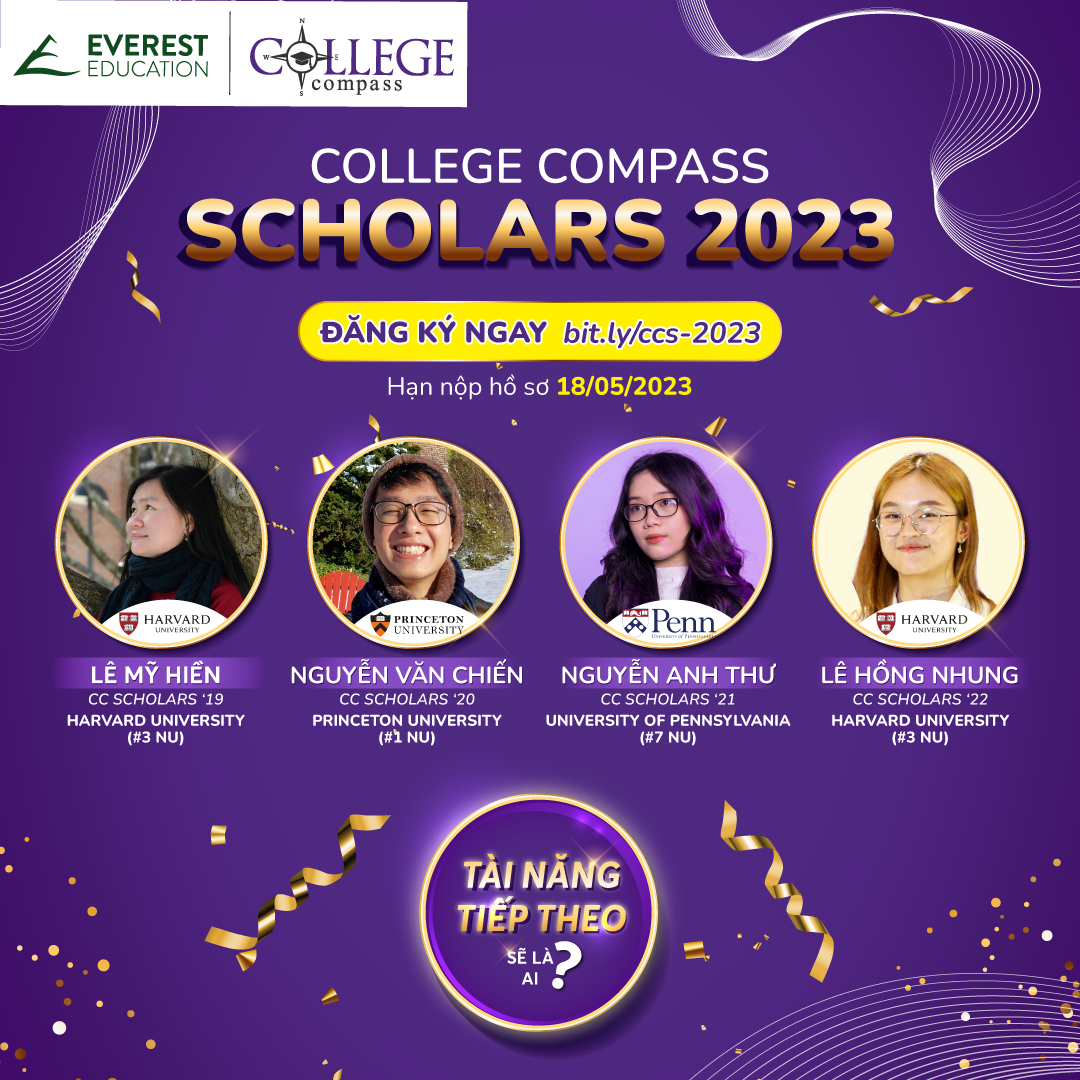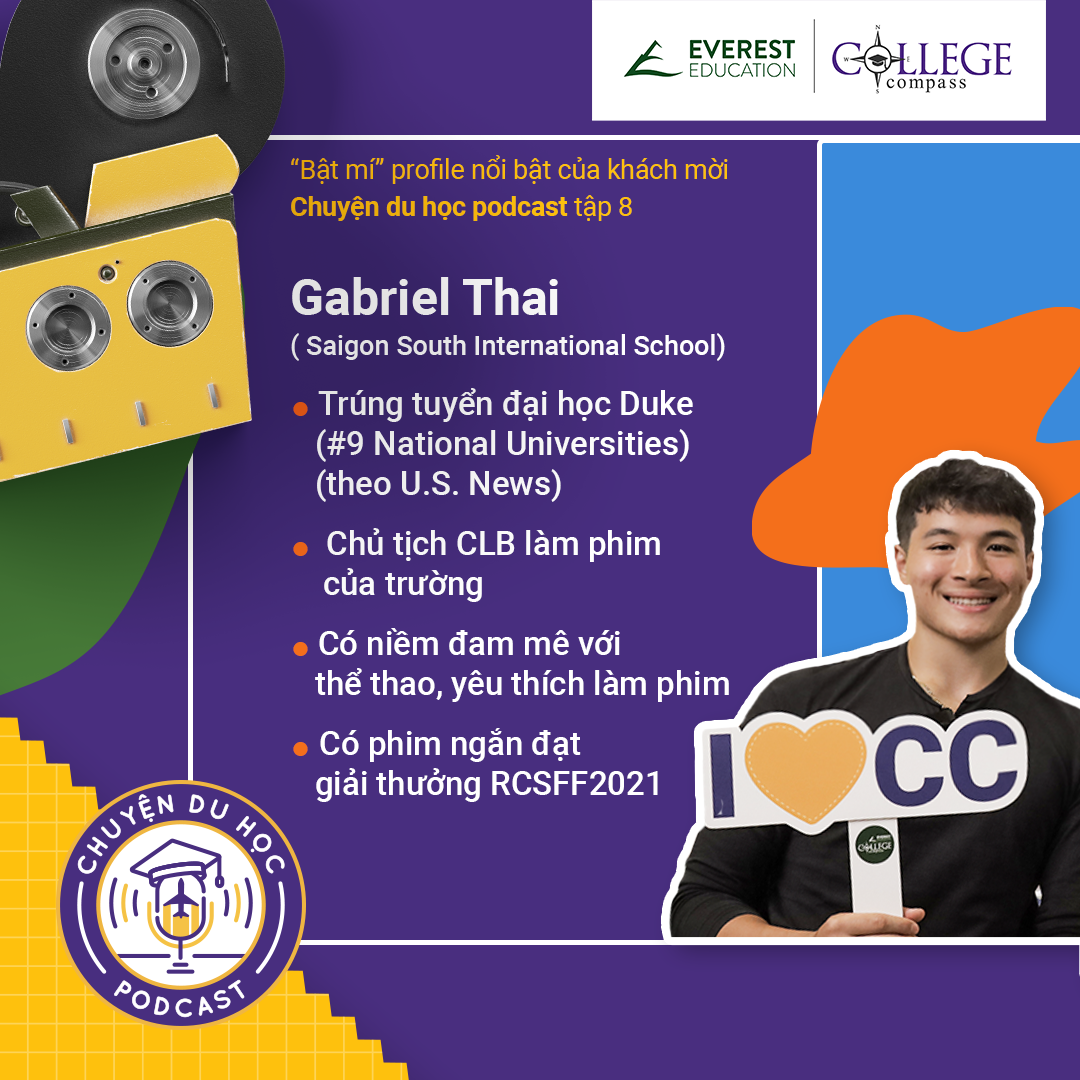Read the full transcript
Don: Hi, my name is Don and I graduated from Stanford.
Tony: And my name is Tony, I graduated from Harvard and Stanford.
Don: We’re the co-founders of Everest Education.
Tony: Over the years, we’ve helped many students get into the college of their dreams. A big part of that is writing your personal essay. And today we found we could do something deeply personal by sharing our own essays that got us into Harvard and Stanford.
Tony: In this essay here, they’ve asked me to discuss a defining experience in my development as a leader. I’ve chosen to highlight a community extracurricular experience that was super important in my personal development. But I also hope that this will highlight how any student can really talk about their extracurricular activities in a story-like format. So I’ll read through it and Don will do some Q&A after every paragraph.
My defining leadership development experience has been the turnaround of the Union of North American Vietnamese Student Associations (uNAVSA), an umbrella group promoting youth activism and supporting regional Vietnamese Student Association (VSA) chapters. This nascent non-profit was formed by young professionals and students in 2004 but remained dormant its first year because the executive board failed to execute on promised initiatives. As a result, support from constituent chapters and uNAVSA’s financial sponsor, the Union of VSAs of Southern California (UVSA), waned. Eventually, UVSA withdrew its funding commitment for uNAVSA’s 2005 conference in Chicago, endangering uNAVSA’s viability and leaving the conference hosts feeling abandoned.
Don: So let me ask you, I guess you chose to pick a very specific challenging experience as your point for your essay, is that right Tony?
Tony: Yeah, so again, I feel like, rather than talk about how I really care about community development. Jumping into one specific, very stressful experience or story is actually a better way to showcase it. And through the telling of that story, hopefully, I showcase my leadership learnings, the impact I had on the community, and the way I’ve thought about running an organization.
Don: Yeah, I feel like a lot of Vietnam students write about their experiences, but in a very general way. So they tend to bounce around a lot. I think what’s nice about this is that when you’re very specific, it’s actually easier for you to want to tell the story and it’s easier from the reader’s perspective as well.
Tony: Totally true. Although, to be honest, I feel like I dive into too many acronyms here. Where even reading this now, I’m getting caught up and tongue-tied on the many acronyms I have such as uNAVSA, VSA and UVSA.
Don: Right.
Tony: I think I would take out at least the less important ones here and just generalize it there because that’s probably a detail that ultimately is not all that critical to the whole story.
Don: Yeah, I think that’s one big thing. We often see with students in writing is that as they come back and read through it. When you write it the first time, you have a lot of details, but as you go through it towards the end, you have to question, “at the end of the day, does this really add to overall story?” Then you end up pulling some and removing those details.
Tony: Exactly, I tell students now that every single word, every single phrase and every single sentence has to add something very specific to your essay or else you should cut it. And actually by that same standard, I should cut at least 10-15 words out of this paragraph right here. Alright, second paragraph….
To begin uNAVSA’s turnaround, I persuaded UVSA to renew support for the conference. I reminded UVSA’s leadership how uNAVSA’s vision remained attainable while expressing the frustrations of the Illinois organizers without assigning blame. Ultimately, the conference was a success, drawing 150 young leaders. During the conference, recognizing I could help uNAVSA realize its vision, I ran for and was elected president.
Tony: In this paragraph here, I kind of jumped straight into the actions that I did in order to solve some of the problems that I talked about in that introductory paragraph. But I actually don’t talk about organizing the conference itself other than that one financial support. I decided to skip over all the other important things, but ultimately they weren’t tied strongly enough to my message. So, all the problems with organizing the logistics or motivating volunteers to put in late nights and weekends to run it. I skipped over all of that
Don: Do you agree that that was the right decision to do that? Because obviously, I think for many people, the organization would be something quite significant. I think there is this temptation to want to include that as part of their essay. To be able to showcase that you have these other skills as well.
Tony: Yeah, I think it’s really key to pick your priorities. I decided that that specific challenge was not the most meaningful one that I wanted to focus on. I actually wanted to focus on what happened after I took over leadership of the organization as president and talk about the actual turnaround, not the conference itself. If I spend too long on the conference, it would drag the essay way too long.
Don: Let me ask you this, did you include that in the early drafts as you were working on this essay. Did you actually include those things?
Tony: I did. I did, and so it’s one of those things where reading through it over and over and having one or two people give me feedback and ask me those questions. As a writer, it’s tough. You write all these words and get attached to them. I know it was really hard for me to actually delete. Deleting words were easy for me, but deleting a whole paragraph was actually super hard. But, I think one of the most important things is to be able to let go.
Don: Yeah, and I think looking at your whole essay, being able to remove that action gives the essay much better focus. It’s about this turnaround, your role and this participation in it. While yes, there’s these other skills, but with this limited amount of space that you actually have here, that it makes for a much stronger story. It also resonates much better as opposed to having another story in this case. Yeah, it’s nice and it adds to who you are, but ultimately, it distracts from the overall point of this story.
Tony: Exactly. Let’s go to the next paragraph……
My first objective as president was to motivate key constituents, many of whom had become disinterested due to uNAVSA’s prior inactivity. This was challenging because I manage peers who are young professionals volunteering their time. To re-establish our credibility, I solicited feedback from chapter leaders on ideas for improvement, and I began sending out monthly newsletters.
I think this is a pretty straightforward paragraph, where I’m just walking through the actions I took to solve this turnaround. So everybody’s disengaged and what are the few things that I did to re-establish our engagement, their engagement.
Most importantly, I am guiding uNAVSA to realize its vision through action. As president, I conceived and initiated the Collective Philanthropy Project (CPP), a nationwide effort to marshal disparate chapters behind one charitable cause: combating human trafficking. Our staff recruited regional representatives to manage “Relays Against Trafficking” across six regions this coming Spring that will build awareness and raise funds benefiting survivors. uNAVSA’s staff is centrally providing marketing, fundraising, and other resources. In fulfilling uNAVSA’s vision of empowering regional chapters through collaboration, corporate planning, and scale, turning around uNAVSA has taught me how to rally and channel the community’s passion behind daunting goals.
Don: So this feels like a pretty important paragraph. It seems like, if I believe, this is probably the biggest action and contribution that you made to the organization.
Tony: Absolutely. I think what’s really interesting here, that some of our students may relate to, is that this was something that was not completed yet at the time I wrote this essay. It was actually still a project that was in motion, we’re only halfway through it. Yet, I felt it was still important enough to talk about it and project on what it was headed towards. Because I know many of our students, especially those in 12th grade are so very very involved in their club activities. So, just because you haven’t finished it doesn’t mean that you can’t write about it. For me, this was definitely a central part of my role as president and central to this entire essay. And then, the last paragraph……
Lacking precedent as a guide, I have adapted business judgment and analytical skills to community applications as I assess opportunities to utilize uNAVSA’s resources. Doing so has highlighted distinctions between boardroom and community leadership. Because corporate objectives are generally well-defined (deliver shareholder returns, increase profits, etc.), business leadership focuses on execution. In contrast, community leadership requires rallying constituents behind common objectives before planning can even begin. The scale, complexity, and lack of precedent have made this my most valuable leadership development experience, while the social impact has made it personally gratifying.
Don: So, I really like how you tied a lot of your experiences across different areas into this last paragraph. And then tie it back up to visit the purpose of the main problem itself.
Tony: Yeah, I definitely tried to do that. If you looked at my overall profile, I was a person who had done business for 5 years already as an investment banker on Wall Street and then working at an investment fund. So, I had a lot of the business side of it, but actually to distinguish myself from everyone who was so similar to that background. I intentionally focused on this leadership experience that was in my extracurricular, running this nonprofit organization. So here, I also try to make this contrast between corporate versus community leadership as something that I thought was really central to my learning process. This was also a key differentiator that would help me stand out.
Don: So Tony, if you step back and take a look at the essay as a whole in terms of the overall structure and how it flows. Can you comment on that, do you notice. if there’s a certain pattern here to what you’re doing and that may be helpful for others to understand.
Tony: Sure. So, I think this is pretty similar to what we now call our SOAR framework, using to tell a story about an experience. SOAR is Situation, Obstacle, Action and then Result. In the situation part of it, I’m trying to give the context of what the organization is, my role and what’s going on. Obstacle is what’s the key challenge that I’m facing in this experience and why is it important. Here, it’s about turning around this organization that is really struggling at this time. Then the Actions are listing out all the things that you do and then finally the Results are what happens as a result of all of that activity, of all those actions. Here, it’s not just the numbers that matter, but it’s actually the internalization, the reflection and the learning that you have as a student, as a leader or whatever it is. I find many many students spend way too much on setting up the situation of the obstacle. They spend maybe 3/4 of the entire essay on that and then don’t leave enough room for the actions and the results. So we work really hard with students to make sure that they balance that and trim it down. So many students, in fact, leave out the key learning on the results and so it’s really important to make sure you put that in there.
Don: Yeah, I feel like your essay. The majority of the time is really for those last two pieces, the Actions you took and the Result. As opposed to, the Situation and the Obstacle. You go and gave that part of it pretty quickly in order to leave more space for the Actions and Results.
Tony: The majority of it is actually of Situation and Obstacle, I cover in the first paragraph. Which as a result, is a little too dense. Maybe I could have made it a little bit more clear and a little bit more spread out with less acronyms. But in general, I think I did do a good job to save myself a lot of space.
So hopefully, you guys found that helpful. We are trying to share our actual essays here. I’ll be honest, it was a little nerve-wracking to expose what I wrote so publicly, but if it helps you guys, I’m really glad that we had this opportunity to do this. If you guys have any essays that you’d like us to review, please go ahead and send them to us and maybe we’ll pick a couple to actually do a review as well.
 Send us your essay via info@e2.com.vn
Send us your essay via info@e2.com.vn



 Send us your essay via
Send us your essay via 







